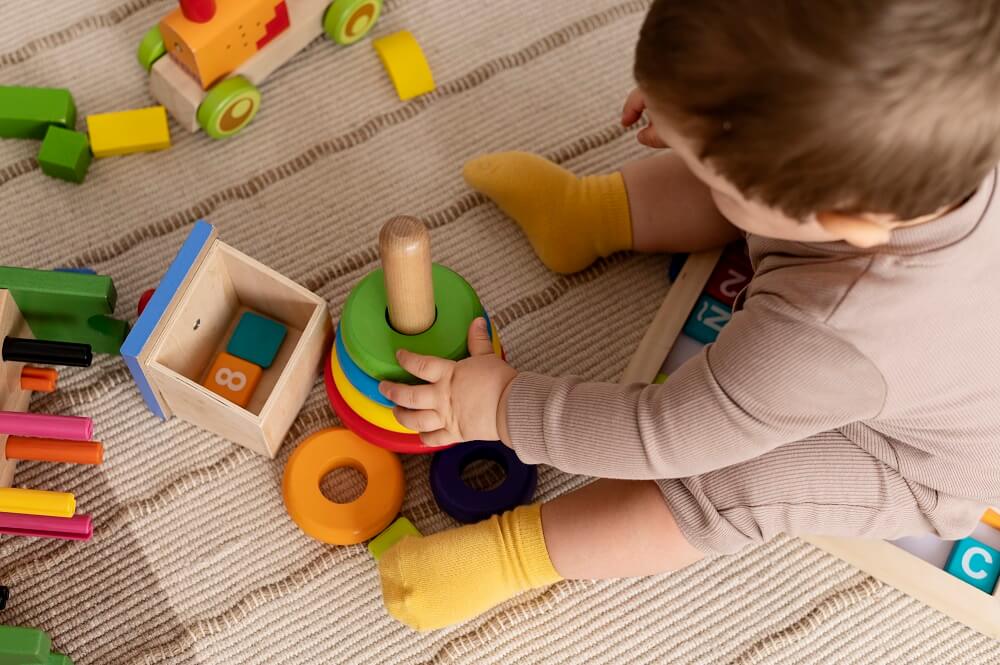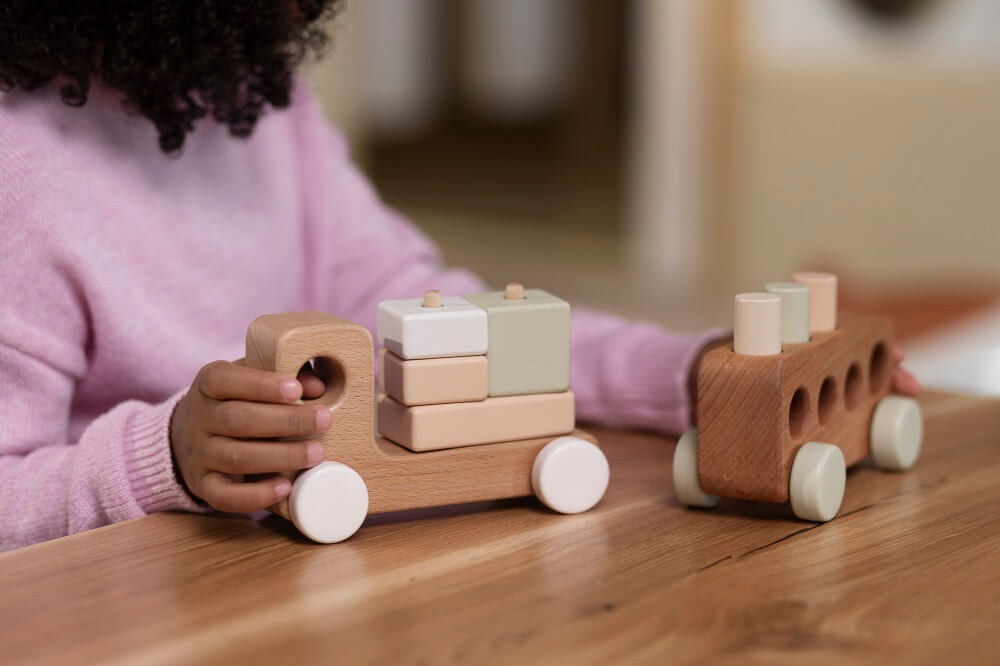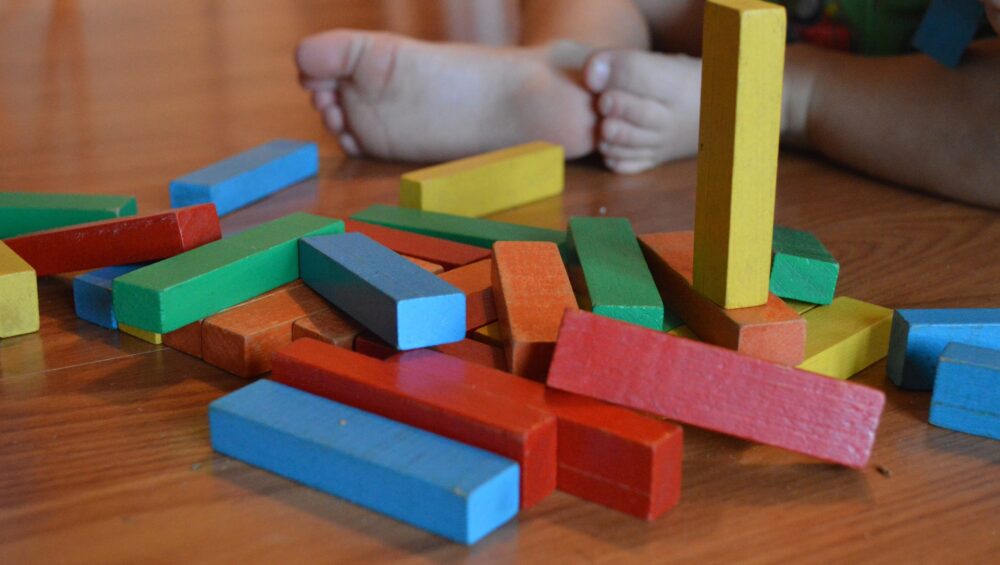Play should always be a part in saving our environment. Wooden materials also builds the connection between the nature and human. Wooden toys are generally considered safer than plastic toys because they do not contain harmful chemicals like BPA (Bisphenol A) or phthalates, which are often found in plastic toys. Wooden toys are non-toxic and don’t pose health risks if children put them in their mouths.
Each time you give your child a wooden toy, you are playing your part in saving our planet and as a result, passing down these values to your child. As an organic, renewable, and sustainable sourced product,
Wooden toy are safe, affordable and durable, not to mention have some role in developing mental and physical skills. Wooden toys do not have electronic parts or voice commands that will instruct your child on what to do. Thus it helps the child to develop their own thinking skills.
It is unfortunate that plastic toys, especially the cheaply made ones, can break easily, potentially leaving sharp edges and small parts that may cause harm to your child. Mother’s major concern is child safety. It is a better option for you to give them high-quality wooden toys such as Ivory wood , Neem wood, which are widely used in India.
Psychologists have proven that wooden pieces have a positive effect on sleep patterns, it gives a comfort and coziness, and stabilize the baby’s nervous system.

Certainly! Wooden toys offer a wide range of uses and benefits for kids. Here are some specific advantages of using wooden toys for children:
- Motor skills development: Wooden toys can help develop fine motor skills, such as hand-eye coordination, as kids manipulate and handle the toys. Building blocks, puzzles, and stacking toys are excellent examples that promote these skills.
- Sensory stimulation: Wooden toys have a natural texture and weight, providing tactile and sensory stimulation for young children. The feel of wood can be soothing and engaging for kids.
- Social skills and communication: Wooden toys often encourage cooperative play, fostering social skills such as sharing, taking turns, and communicating with others. Dollhouses, play kitchens, and wooden train sets are great examples of toys that facilitate social interaction.
- Screen-free play: Wooden toys offer a healthier alternative to screen-based entertainment. They help reduce screen time and encourage children to engage in more active and imaginative play.
- Open-ended play: Wooden toys often encourage open-ended play, allowing children to use their imagination and creativity. Unlike some electronic or pre-programmed plastic toys, wooden toys can be versatile and adaptable, enabling children to come up with their own ways of playing and learning.

Choosing wooden toys allows children to engage in open-ended play, encouraging them to explore their imagination freely and develop their creativity. These toys also aid in the development of essential motor skills, cognitive abilities, and social skills, while providing sensory stimulation and tactile experiences that are beneficial for young minds.
Moreover, wooden toys are a sustainable and environmentally responsible option. By supporting products made from renewable resources, we can contribute to a healthier planet for future generations. Additionally, the durability of wooden toys ensures they can withstand the test of time, becoming cherished heirlooms or items that can be passed down to siblings or other children. choosing wooden toys for your kids is a conscious decision that not only benefits the child’s growth and development but also reflects a commitment to sustainability and environmental consciousness. These timeless and classic toys have the potential to make a positive impact on a child’s life, providing countless moments of joy, learning, and discovery.






